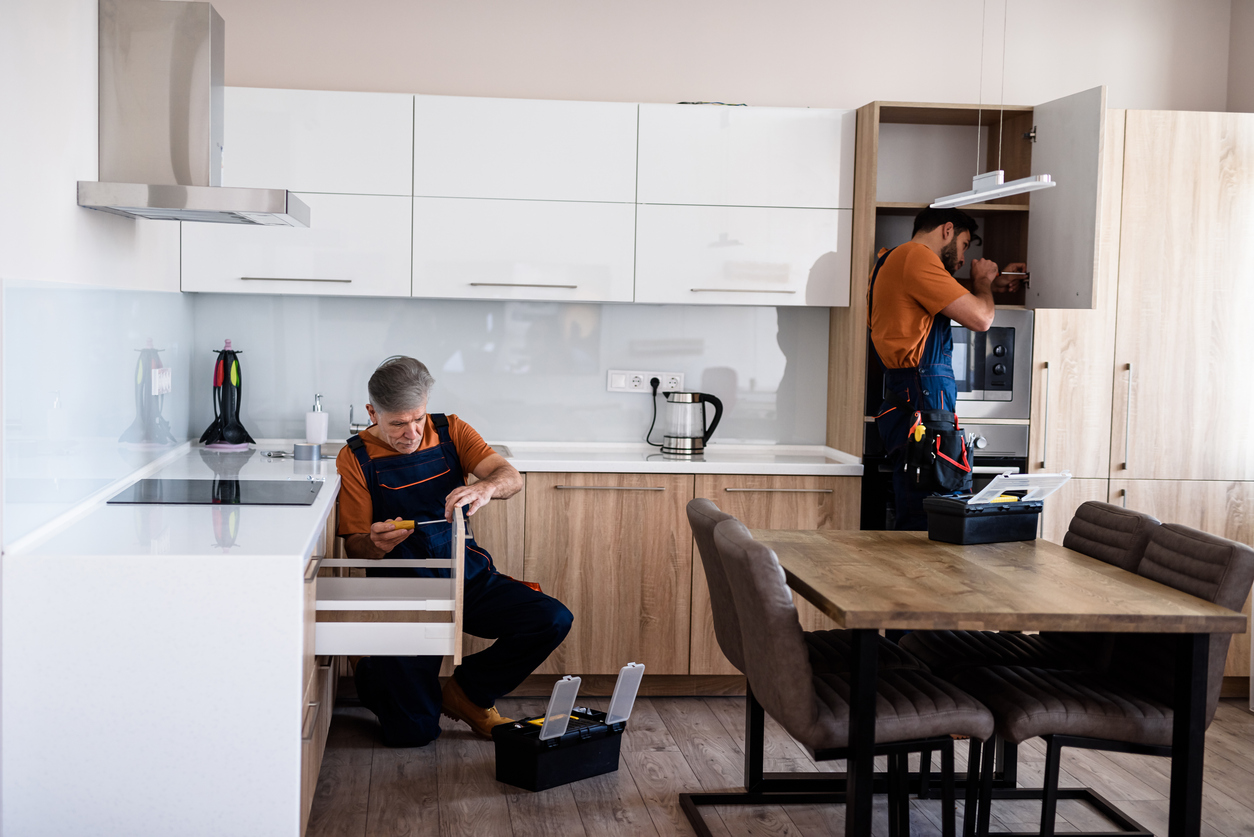



Hiring a professional kitchen fitter ensures that your new kitchen is installed safely, efficiently, and with high-quality finishes. However, the cost of kitchen fitting varies widely depending on factors like the scope of the project, materials used, and level of customization. Here’s a detailed guide to understanding kitchen fitter costs, along with factors that influence pricing and tips for budgeting.
Kitchen fitting costs can vary depending on the complexity of the job and the materials selected. Here’s a breakdown of average costs based on different levels of kitchen fitting:
Basic Fitting: £1,500 - £3,000
For a standard kitchen installation with minimal customization, this covers basic cabinetry, appliance fitting, and essential plumbing and electrical connections.
Mid-Range Fitting: £3,000 - £7,000
A mid-range kitchen fitting includes customized cabinetry, higher-end materials, and additional services like tile work and lighting, suitable for modern or larger kitchens.
Luxury or Custom Fitting: £7,000+
High-end or custom kitchen installations typically involve premium materials, bespoke cabinetry, and advanced fixtures, with specialized fitting that requires more time and expertise.
Size and Layout of the Kitchen
Larger kitchens or those with complex layouts may require additional time and materials, increasing the overall fitting cost. For instance, a galley kitchen may be less expensive to fit than a large, open-plan kitchen with an island.
Quality of Materials and Fixtures
The choice of materials can significantly impact costs. Basic cabinetry and laminate countertops are more budget-friendly, while custom cabinetry, granite, or quartz countertops increase the fitting cost due to their higher price and fitting complexity.
Customizations and Bespoke Elements
Custom elements like built-in cabinetry, unique lighting configurations, and personalized features add to labor time and cost, as they require more detailed fitting and specialized tools.
Scope of Plumbing and Electrical Work
Kitchens that require extensive plumbing or electrical work, such as moving plumbing lines, adding extra sockets, or installing under-cabinet lighting, will have higher costs due to the need for certified professionals.
Additional Services
Additional services such as painting, tiling, or flooring are often added to kitchen fitting projects. These services increase overall costs but create a cohesive look and finish for your kitchen.
Location
Labour rates vary by location, with London and other major cities generally having higher rates than rural areas. Local demand can also affect the availability and pricing of kitchen fitters.
Here’s a general estimate of individual costs for common components of a kitchen fitting project:
These costs can vary based on material quality, the complexity of installation, and the need for customizations. Consulting with a kitchen fitter provides a more accurate estimate tailored to your specific project.
Plan Ahead and Set a Realistic Budget
Set a clear budget before starting the project to prioritize essential features. Factor in potential extra costs, such as removal of old units or unforeseen adjustments.
Source Your Own Materials
Some kitchen fitters allow clients to source their own cabinets, countertops, or tiles, which can sometimes be more cost-effective. Look for sales or discounts on materials to lower costs.
Opt for Semi-Custom Elements
Instead of full custom cabinetry, consider semi-custom options, which allow for some customization at a lower cost. This provides a balance between quality and affordability.
Bundle Services
Many kitchen fitters offer a discount when bundling multiple services, like fitting cabinets and installing appliances. Discuss package options to maximize savings.
Get Multiple Quotes
Request quotes from at least three kitchen fitters to compare prices and services. Look for fitters with strong client reviews and transparency about their services and fees.
Consider DIY for Minor Tasks
If you’re comfortable with DIY, minor tasks like painting or tiling can save costs. However, always leave plumbing, electrical, and heavy installations to professionals.
Pros:
Cons:
1. Can I hire a kitchen fitter for specific parts of the project?
Yes, many kitchen fitters offer partial services, allowing you to hire them for specific tasks such as cabinetry installation or appliance fitting.
2. Is it cheaper to use a kitchen fitter provided by a kitchen retailer?
Retailer-provided fitters may offer bundled discounts, but independent fitters often provide more flexible options and may offer better rates. Always compare both options for the best value.
3. How long does kitchen fitting take?
A basic kitchen fitting can take 1-2 weeks, while a more extensive or custom fitting may take 3-4 weeks. The timeline depends on the project’s scope and complexity.
Hiring a kitchen fitter is a worthwhile investment for anyone looking to achieve a professional, high-quality kitchen renovation. From basic installations to luxury fittings, understanding the costs involved helps you budget effectively and choose the right fitter for your project.
To get started, reach out to local kitchen fitters for detailed quotes and consultations. With their expertise, you’ll be one step closer to creating a beautiful, functional kitchen that meets your needs and enhances your home.